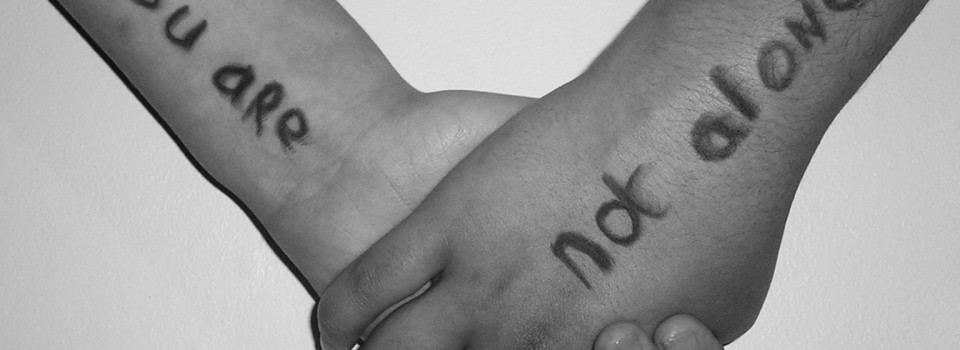
The article, “How to help: 4 things to say to bereaved parents… and one thing NEVER to say, first appeared on The Today Show in early July. As soon as they began talking about bereavement, my eyes and ears were glued to the television. As they read through the list of things “not to say” to bereaved parents, I felt as if they were validating everything I felt in the months following my dad’s suicide. There is something about a loss by suicide that makes people uncomfortable. Nobody knows what to do or say, which can leave a survivor feeling completely alone in their grief. I wanted to share this article as I feel any survivor can relate; not just those who have lost a child. You can click the above link to access the article in its entirety. Below is a summary of what to say, and what not to say:
What to say:
1. “Do you want to talk?”
Don’t shy away and don’t keep your distance.
“What works is your presence. There’s no set of words that will work each time, but being there for someone in a supportive way is what provides the most consolation,” Livingston said.
Bereaved parents need to be able to talk, so look for ways to open up the conversation and give the mom or dad a chance to speak, Kulkkula said. Check on them regularly so that if they want to talk, they can.
2. “I remember the time when…”
Don’t avoid mentioning the child who has passed away, Livingston said. In fact, the silence of people not mentioning her late son’s name can be “deafening,” a St. Louis mom wrote in a powerful essay for Bereaved Parents of the USA. Like many parents who have lost a child, she craved hearing his name and stories about him.
Kulkkula and her husband loved it when people shared anecdotes about their late son.
“With most people, it’s their own discomfort that stops them from talking about it with the family. So unless a parent tells you, ‘I can’t talk about him or her now,’ please talk about their children,” she said.
3. “I gave to his memorial fund”
Bereaved parents are often afraid their children will be forgotten, Livingston said. One of his friends set up a memorial fund for Lucas and each year on the anniversary of the boy’s death, there’s a contribution.
“That sense of continuing and remembrance goes a long way,” he noted.
Kulkkula found it comforting when her church started a scholarship fund in memory of her late son.
4. “I mowed the lawn”
An open-ended offer — such as “I’ll do anything, just let me know” — likely won’t work because the bereaved person won’t want to ask for help, Kulkkula said, or might not even know what they need. Rather, make it more specific, such as “I’m bringing you a meal tonight, I’ll be there at 6 o’clock.”
Livingston is still appreciative that after his youngest son died, somebody just showed up and mowed his lawn.
And the one phrase never to say: “I know how you feel”
This is the No. 1 phrase to avoid when consoling a grieving mom or dad (and I think ALL survivors can relate to this one!)
“It’s not permitted to say that to a bereaved parent unless you are a bereaved parent,” Livingston said. “It betrays such a lack of understanding of what the bereaved parent is going through.”
People are sometimes tempted to list their own periods of grief — the death of their grandmother or a beloved family pet — as a way to sympathize, but those are not equivalent losses, he noted.
“To try to explain to people that this is the kind of loss that transforms you into a different person, that you will never be the same person you were before this happened, is almost impossible.”




I am forever changed as a mother….until I die, I will mother my deceased child in my memories and heart each day I live. Her name, Stephannie, did not die. Stephannies life was complete in earthly ” time”. She lives when you mention her name, when you touch my heart.